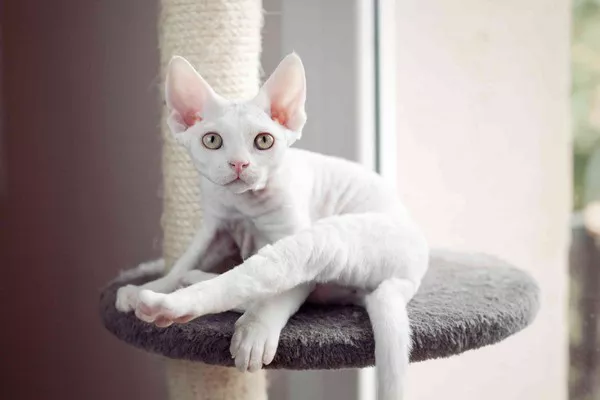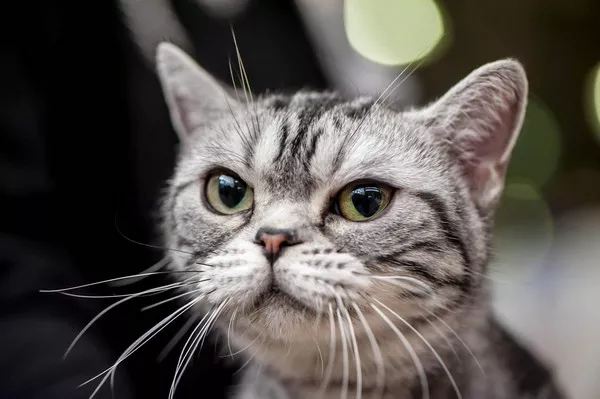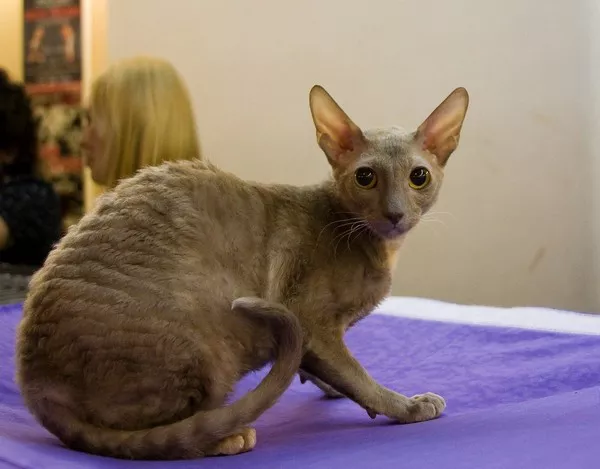The Devon Rex cat, with its distinctive curly coat and playful demeanor, is a beloved breed among cat enthusiasts. However, like all breeds, Devon Rex cats can experience unique health conditions, one of which is fever coat. In this comprehensive guide, we’ll delve into the phenomenon of fever coat in Devon Rex cats, exploring its causes, symptoms, diagnosis, and management strategies.
Unraveling the Mystery of Fever Coat
Fever coat, also known as stress coat or ghost tabby, is a temporary discoloration or alteration of a cat’s fur that occurs in utero when the mother cat experiences stress or illness during pregnancy. The exact cause of fever coat is not fully understood, but it is believed to be related to the release of stress hormones in the mother cat, which can affect the development of the kitten‘s fur follicles.
Understanding the Genetics of Devon Rex Cats
Before we delve into fever coat in Devon Rex cats, it’s essential to understand the genetics of the breed. Devon Rex cats are known for their unique coat type, which is curly, soft, and often described as “rexed.” This distinctive coat is the result of a genetic mutation that affects the structure of the fur follicles, causing them to be shorter, finer, and more flexible than those of other cat breeds.
Causes of Fever Coat in Devon Rex Cats
While fever coat can occur in cats of any breed, it is believed to be more common in Devon Rex cats due to their unique genetics and susceptibility to stress-related conditions. The stress or illness experienced by the mother cat during pregnancy can disrupt the normal development of the kitten’s fur, resulting in the characteristic discoloration or alteration seen in fever coat.
Symptoms of Fever Coat in Devon Rex Cats
Fever coat in Devon Rex cats typically manifests as a lightening or dilution of the kitten’s fur color, resulting in a “washed out” or “faded” appearance. The affected areas of the coat may appear lighter than the rest of the fur, with a distinct contrast between the two. Fever coat is usually most noticeable in areas of the body where the fur is longest, such as the back, sides, and tail.
Diagnosis of Fever Coat in Devon Rex Cats
Diagnosing fever coat in Devon Rex cats is usually straightforward, as the characteristic discoloration or alteration of the fur is readily apparent. However, it’s essential for cat owners to consult with a veterinarian to rule out any underlying health conditions that may be contributing to the coat changes. Your veterinarian may perform a physical examination, review the cat’s medical history, and may recommend additional tests or diagnostic procedures if necessary.
Management Strategies for Fever Coat in Devon Rex Cats
While fever coat in Devon Rex cats is generally harmless and resolves on its own over time, there are some management strategies that cat owners can employ to help their pet through the process:
1. Ensure Proper Nutrition and Care
Providing your Devon Rex cat with a balanced and nutritious diet, regular grooming, and a stress-free environment can help support overall health and well-being, which may reduce the likelihood of fever coat occurring in future litters.
2. Regular Veterinary Check-Ups
Schedule regular check-ups with your veterinarian to monitor your cat’s health and address any concerns or issues that may arise. Your veterinarian can offer guidance on proper care and management of your Devon Rex cat to help prevent or minimize the occurrence of fever coat.
3. Patience and Understanding
Fever coat in Devon Rex cats is a temporary condition that typically resolves on its own as the kitten’s fur grows out and matures. Be patient and understanding during this time, and provide your cat with plenty of love, attention, and care to help them through the process.
Conclusion: Navigating Fever Coat in Devon Rex Cats
In conclusion, fever coat is a temporary discoloration or alteration of a cat’s fur that occurs in utero when the mother cat experiences stress or illness during pregnancy. While fever coat is more commonly seen in Devon Rex cats due to their unique genetics and susceptibility to stress-related conditions, it is generally harmless and resolves on its own over time. By understanding the causes, symptoms, diagnosis, and management strategies for fever coat in Devon Rex cats, cat owners can provide their pets with the care and support they need to thrive.


























